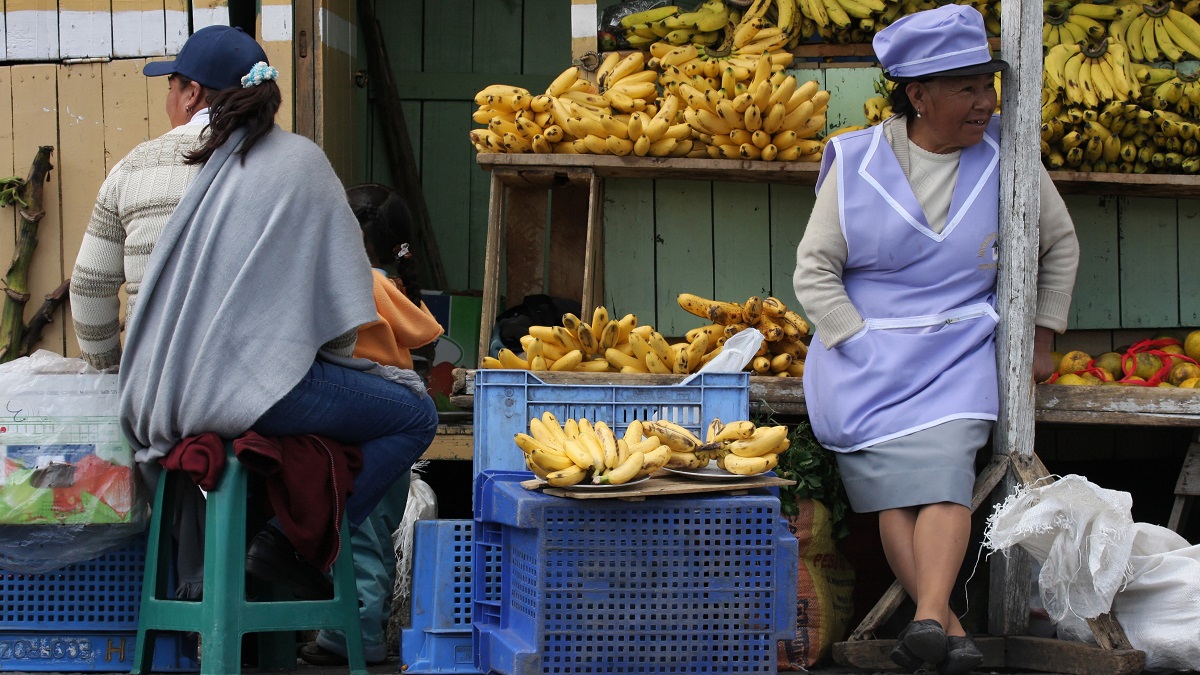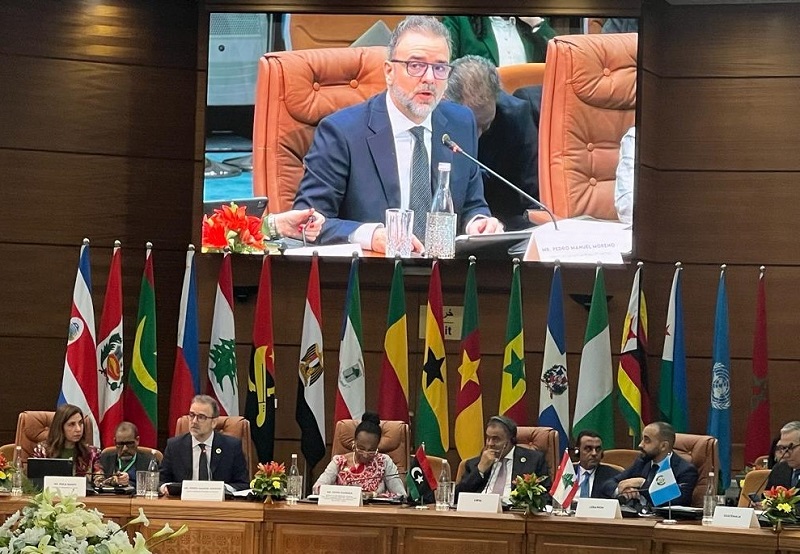These nations, home to about 62% of the world’s poor, grapple with critical challenges and lack necessary support, particularly in access to finance.

© Shutterstock/Pierre Jean Durieu | A fruit seller in a market in Saqisilli, Ecuador.
UNCTAD Deputy Secretary-General Pedro Manuel Moreno spotlighted on 6 February the challenges and potential of middle-income countries during a speech at a high-level conference in Rabat, Morocco.
Mr. Moreno said these nations lack the global support they need, despite being home to about 75% of the global population and 62% of the world’s poor and facing mounting debt and worsening climate vulnerabilities.
“If we are committed to a world of shared prosperity, these countries need our support,” Mr. Moreno said.
‘A daunting journey’
The UNCTAD deputy chief said few middle-income countries have managed to catch up with advanced economies over the decades. Some have even seen their per capita income decline.
This “daunting journey” to catch-up is hindered by the complexities of structural changes and growth, especially as the initial benefits of moving labour from agriculture to manufacturing wane.
As these economies expand, the availability of underemployed rural labour decreases. To continue moving up the ladder and avoid the so-called “middle-income trap”, they need to build the capacities to develop new products.
Critical role of industrial policies
Mr. Moreno highlighted the essential role of industrial policies in helping some nations avoid the trap, pointing to East Asian success stories like the Republic of Korea.
These countries leveraged their existing industrial skills to develop and expand new production and export sectors, moving into more complex and high-value areas like steel and electronics.
“At the heart of these success stories were targeted industrial policies,” Mr. Moreno said. “While such policies became out of fashion a few years ago, there is renewed interest in them, and for good reasons.”
Need to relieve growing debt burdens
The UNCTAD deputy chief said, however, that such strategies require fiscal space, which is currently constrained in middle-income countries by growing debt burdens and limited access to finance.
Today, 3.3 billion people live in countries that spend more on debt than on either health or education. And most of them live in middle-income countries, which are ineligible for debt relief through the G20’s Common Framework.
Mr. Moreno reiterated UNCTAD’s call for an effective debt-relief mechanism that supports payment suspensions, longer lending terms and lower rates. He also advocated for urgent action to provide affordable, long-term finance for investment in these countries, saying re-capitalizing multilateral development banks offers a good avenue.
UNCTAD, he said, fully supports the UN Secretary-General’s call for a Sustainable Development Goals stimulus of at least $500 billion annually.
Potential in green technologies
Mr. Moreno emphasized the key role industrial policies can also play in capitalizing on these countries’ “green” potential.
“There is immense potential of renewable energies and the energy transition in middle income countries,” he said, pointing to Morocco as an example.
The country now hosts one of the largest wind farms in Africa and has the potential to become a key exporter of solar energy.
But realizing this potential requires quick access to clean technologies.
“The energy transition cannot happen without broad access to green technologies,” he said. “And it is our joint interest that this happens fast and everywhere.”




